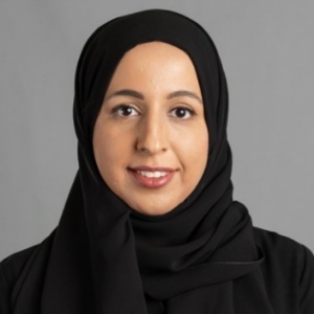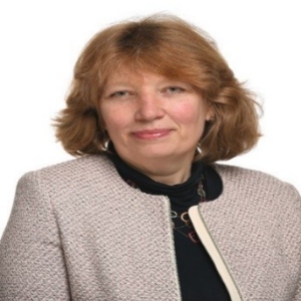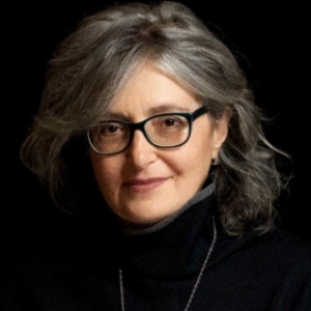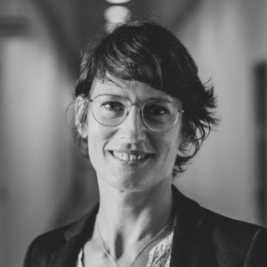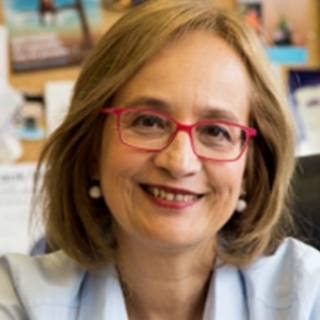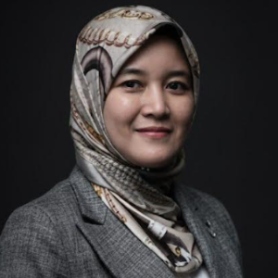Women in STEM Symposium – AICCSA 2025
7th edition – October 21st, 2026 – 10 a.m. CET/11a.m. in Qatar
Context
Women in STEM is an initiative that examines, critiques, and reimagines scientific practice and communities through the lens of female values. Its aim is to offer an alternative perspective where diversity, equity, and inclusion shape the organization of scientific events and activities, creating space for voices that are often underrepresented: women in science, non-hegemonic masculinities in science, early-career researchers, and multidisciplinary viewpoints. It advocates for redefining success, valuing contributions beyond traditional quantitative metrics, and recognizing diverse forms of impactful achievements.
The initiative is led by women but aims to benefit the entire scientific community, grounded in the belief that DEI (Diversity, Equity, and Inclusion) values attract diverse talent. This diversity enhances knowledge production and expands our ability to tackle the complex challenges facing humanity today.
Program
- 10 am – Keynote Talk: “From Sensing to Personalization: The A-Sense Route Toward Inclusive and Human-Centered Technologies” by Dr. Dena Al-Thani, Co-Founder of the A-sense Center of Excellence, and Head of the Information and Computing Technology Division at the College of Science and Engineering.
- 10:45 am – Panel – Title: Women in STEM and AI: Catalysts for Structural Change
Women in STEM 2025 – Keynote

Dr. Dena Al-Thani is an Associate Professor, Co-Founder of the A-sense Center of Excellence, and Head of the Information and Computing Technology Division at the College of Science and Engineering. She received her Ph.D. in Computer Science from Queen Mary University of London. Her research interests include accessibility, inclusive design, and eHealth. Dr. Al-Thani actively publishes in top journals and presents at international conferences. She is a member of the WHO’s technical advisory group on assistive technology and the Arab ICT Accessibility Expert Group, led by Mada.
Title: From Sensing to Personalization: The A-Sense Route Toward Inclusive and Human-Centered Technologies
The Autism Sensing Center of Excellence (A-Sense) is a world-class research hub dedicated to advancing innovative technologies for the assessment and support of individuals with autism spectrum disorder (ASD). Through interdisciplinary collaboration across computing, medicine, and education, A-Sense develops solutions that empower autistic children and their families. The Center’s work combines artificial intelligence (AI) and state-of-the-art sensing technologies to enable the quantitative and personalized assessment of behavior, forming the foundation for adaptive and inclusive learning systems. This keynote will present an overview of the Center’s portfolio of projects that integrate AI, behavioral sensing, and human-centered design to create technologies that adapt to individual needs. A particular focus will be devoted to the Attention Assessment Project, which aims to objectively detect and interpret the attention of children with ASD which is a key factor influencing learning outcomes. While teachers often rely on subjective observations to gauge attention, A-Sense introduces a data-driven approach using machine learning and unobtrusive sensing technologies, such as webcams and eye-tracking devices, to analyze gaze direction, facial expressions, and head pose. The work from this project highlights the importance of personalization in model design—moving beyond the traditional one-size-fits-all paradigm toward systems that adapt to individual behaviors. By tracing the A-Sense journey from sensing to personalization, this talk underscores a broader vision: True inclusion is achieved when we design technologies that recognize and respond to the uniqueness of every individual.
Women in STEM 2025 – Panel
Panel: Women in STEM and AI: Catalysts for Structural Change
Moderators
Chirine Ghedira Guégan, IAE, University Jean Moulin, Lyon 3, France
Takoua Abdellatif, University of Sousse, Tunisia
Genoveva Vargas-Solar, CNRS, France
Hybrid mode 21st October 2025 11:45 CET
– In situ, conference venue: Pullman Doha West Bay
– Online: click_here
Objective of the Panel
This panel examines how artificial intelligence, when paired with women’s leadership in STEM, can enhance women’s lives across various aspects, including health, education, work, and everyday experiences. Speakers from research, entrepreneurship, ethics, and social impact will explore how AI amplifies bias and where it can help close gaps. Together, they’ll highlight practical solutions, responsible design, and why women’s participation at every stage of AI development is essential to building inclusive technologies.
AI for all requires women at the table—designing, testing, and governing the tools that shape our lives.
Panelists
Proposed Discussion Topics (in priority order)
- Inclusive Societal Impact
- AI for women in rural/low-connectivity contexts or with limited formal training
- Practical wins in daily life: safety (SOS/helpline tools), agriculture (yield/price forecasts), micro-credit & mobile banking, identity & document access, public-service chatbots
- What it takes to scale: affordability, offline/low-data modes, local languages, trust
- Education & Knowledge Access
- Accessible STEM learning: intelligent tutoring, adaptive practice, automatic translation, text-to-speech/speech-to-text, sign-language and dyslexia supports
- On-ramps for non-specialists: short courses, micro-credentials, community labs, teacher training
- Mitigating risks: misinformation, over-reliance, data privacy for minors
- Professional Equality
- Fairer workplaces: detecting bias in hiring and promotion, pay-gap analytics, inclusive scheduling and safety policies
- Tools that help women thrive: mentorship matching, skills mapping, flexible work optimization, return-to-work pathways
- Accountability & governance: audits, transparency, worker voice, procurement standards
Teasing questions
- Cross-cutting openers
- Where is AI already improving women’s daily lives today—and for whom is it not working yet?
- In your experience, what’s one inclusion failure you’ve seen—and how would you fix it? (be specific: data, design, or deployment)
- Inclusive Societal Impact
- What design choices (offline mode, local language, price point) most determine uptake in rural communities?
- Share one example where a woman-led team built an AI tool that changed everyday outcomes (safety, income, access). What made it stick?
- Education & Knowledge Access
- Which AI features most effectively lower barriers for girls/women entering STEM at different life stages?
- How do we balance AI-enabled tutoring with teacher capacity, assessment integrity, and student privacy?
- Professional Equality
- What’s the right way to audit algorithms for hiring and pay equity—internally vs. externally?
- Which workplace tools measurably improve retention and advancement for women, and how do we avoid “fair-washing”?
- Forward-looking close
- If you could change one policy, one product feature, and one dataset tomorrow to advance equity, what would they be?
- How can women shape AI’s future—as designers, decision-makers, and data stewards—not just end-users?
Format
The panel will be organised into 3 rounds as follows:
- Panellists will provide a 5 minutes statement addressing some of the teasing questions and/or complementay ones
- Moderators will ask questions according to the initial statements and will open the floor to the audience
- Panellists will conclude with a final statement about the take aways they consider important about the topic
Panelists biographies
Dr. Dena Al-Thani
Dr. Dena Al-Thani is an Associate Professor, Co-Founder of the A-sense Center of Excellence, and Head of the Information and Computing Technology Division at the College of Science and Engineering. She received her Ph.D. in Computer Science from Queen Mary University of London. Her research interests include accessibility, inclusive design, and eHealth.
Dr. Al-Thani actively publishes in top journals and presents at international conferences. Her research on inclusion aims to make a global impact. She is a member of the WHO’s technical advisory group on assistive technology and the Arab ICT Accessibility Expert Group, led by Mada.
Dr Rita Bencivenga
Dr Rita Bencivenga is an expert with over 35 years of experience in Gender and Equality, Diversity, and Inclusion (EDI) studies, with a particular focus on STEM subjects. She holds a PhD from the University of Paris X Nanterre, France, with a thesis on gender and Information and Communication Technology (ICT). She currently works at the University of Genoa, Italy, promoting the integration of Gender+ and EDI perspectives in research and teaching.
Her research interests include Gender+ in higher education, Gender+ and technology, and broader EDI issues. Throughout her academic career, she has collaborated with institutions such as Queen’s University Belfast (UK), LEGS – Laboratoire d’études de genre et de sexualité at CNRS/Université Paris 8 Vincennes Saint-Denis and Université Paris Ouest (France), and Trinity College Dublin (Ireland). She has also taught at several institutions, including the University of Genoa (Italy), ISPEF, Université Lumière Lyon 2, and Université Paris 8 Vincennes – Saint-Denis (France).
Dr. Bencivenga has coordinated or participated in over 30 international EU-funded projects addressing gender and ICT, EDI, Gender+, and intersectionality in higher education and public organisations. Since 1991, she has served as an expert for numerous national and international funding bodies, including the European Commission; the European Institute of Innovation and Technology (EIT); Xjenza Malta_R&I National Funding (Malta); the National Institute for Documentation, Innovation and Educational Research (INDIRE) and the National Institute for Public Policies Analysis (INAPP) in Italy, and the Executive Unit for the Financing of Higher Education, Research, Development, and Innovation (UEFISCDI) in Romania
Dr Athena Vakali
Dr. Athena Vakali [female] is a professor at the School of Informatics, Aristotle University, Greece, where she leads the Laboratory on Data and Web science (Datalab https://datalab.csd.auth.gr/). She holds a PhD degree in Informatics (Aristotle University), a MSc degree in Computer Science (Purdue University, USA), and BSc degree in Mathematics. Her current research interests include emerging methods and technologies in cutting edge areas of Data Science (DS), Artificial Intelligence (AI), Trustworthy and Responsible Data Innovation. Her expertise emphasis is on data exploration and analytics, AI metrics, methods and techniques; Next Generation Internet (NGI) applications and enablers; online social phenomena and disinformation detection; Data Science and AI for social good and innovation ; Data management at the egde and at decentralized contexts. She has supervised several completed PhD theses and she has been awarded for her educational and research work which is extended with mentoring and students empowerment (ACM, ACMW). Prof. Vakali has published over than 220 papers in refereed journals and Conferences and she is Associated Editor in ACM Computing Surveys Journal, in the editorial board of the “Computers & Electrical Engineering” Journal, and ICST Transactions on Social Informatics (her publications received over 12140 citations with h-index=45 according to gscholar). She has coordinated and participated in more than 25 research projects in EU FP7, H2020, international and national projects. She has acted as keynote lecturer/speaker at several prestigious Conferences and events such as : RESET MCSA’24 summer school “Gender equality and diversity in academia”; ACM womENcourage 2023 Women in Computing conf.; FIBEP world’s media intelligence tech-days’21; MCSA training on Journalism, & Data Exploration (2020); IEEE/CAS “Building blocks for the Internet of Things” (2017), etc. She has co-chaired major Conferences Program Committees such as : ACM Gender Equality Summit (Greek Chapter) 2022, PC co-chair at the ACM/IEEE Web Intelligence Conference 2019, the EU Network of Excellence 2nd Internet Science Conference (EINS 2015), 15th Web Information Systems Engineering (WISE 2014), 5th International Conference on Model & Data Engineering (MEDI 2015), etc. She has also served as Workshops co-chair and has been a member to numerous International conferences and Workshops. She is also recognized as an ACM Senior Member and ACM Distinguished speaker. More info : https://datalab.csd.auth.gr/avakali/
Dr Tatiana Kalganova
Dr Tatiana Kalganova is a Professor of Intelligent Systems at Brunel University London and a director of Research Centre on AI: Social and Digital Transformation, renowned for her research in evolutionary computation, neural networks, and hardware-based AI. As Series Editor for the Atlantis Highlights in Intelligent Systems, she actively promotes cutting-edge research in AI and intelligent systems. Being the first female who has been promoted to readership and the only female professor since the EEE department being formed in 1966, she actively mentors early-career researchers and promotes inclusive practices in academia and industry. Her participation in this panel reflects her commitment to empowering women in STEM and driving structural change through interdisciplinary collaboration and technological innovation.
Dr Élise Lavoué
Dr Élise Lavoué is a Full Professor at iaelyon School of Management, Jean Moulin University Lyon 3 (France), and head of the Situated Interaction, Collaboration, Adaptation, and Learning (SICAL) research group at the LIRIS laboratory. Her research focuses on motivational techniques, adaptive gamification, user engagement, and learning analytics, within the fields of Technology-Enhanced Learning (TEL) and Human–Computer Interaction (HCI). She was a visiting professor at McGill University (ATLAS lab) in 2016 and defended her habilitation (HDR) the same year. Since 2021, she has been Editor-in-Chief of the STICEF journal and a board member of the ATIEF association. She has served as general co-chair for the CSCL 2019 conference, organisational chair for EC-TEL 2016, program co-chair for EC-TEL 2017, IHM 2018, and EIAH 2025, associate chair for CHI Play 2022 and CHI 2023 and as a program committee member for EC-TEL, LAK and AIED conferences.
Dr Is. Mutia Sobihah Abd Halim
Dr Is. Mutia Sobihah Abd Halim is a distinguished academic and strategic leader currently serving as the Dean of the Graduate School, Universiti Sultan Zainal Abidin (UniSZA), Malaysia. With a strong background in strategic management, university development, research excellence, and international collaborations, she has built a reputation as an influential figure in higher education and cross-border engagement.
Throughout her career, Dr. Mutia has held several key leadership roles including Head of Business Strategy, Director of Corporate Communication, and Tourism Advisor to the Terengganu State Government. In these capacities, she has been instrumental in strengthening industry linkages, cultivating strategic partnerships, and advancing heritage-, community-, and education-based tourism initiatives that bridge academia and society.
Her professional recognitions reflect both national and international esteem. Dr. Mutia is recognized as an Industry Specialist (IS) by the Malaysian Empowerment Council, serves as an Adjunct Professor at Alfa University College, and holds international appointments as the Consultant and Official Representative of Iqra Arabia, Umm Al-Qura University, Saudi Arabia, and the Official Representative of the Turkey Youth Foundation (TÜGVA) in Malaysia. She has been invited as a keynote speaker in Indonesia, Kazakhstan, and Qatar, sharing insights on leadership, education, and sustainable development.
Dr. Mutia’s global engagement is further affirmed through her appointment as a Research Fellow under the Turkiye Burslari Program, Office of the President of Türkiye. Her dedication to innovation and excellence has also earned her multiple accolades, including two gold, two silver, and two bronze medals in national and international innovation competitions.

